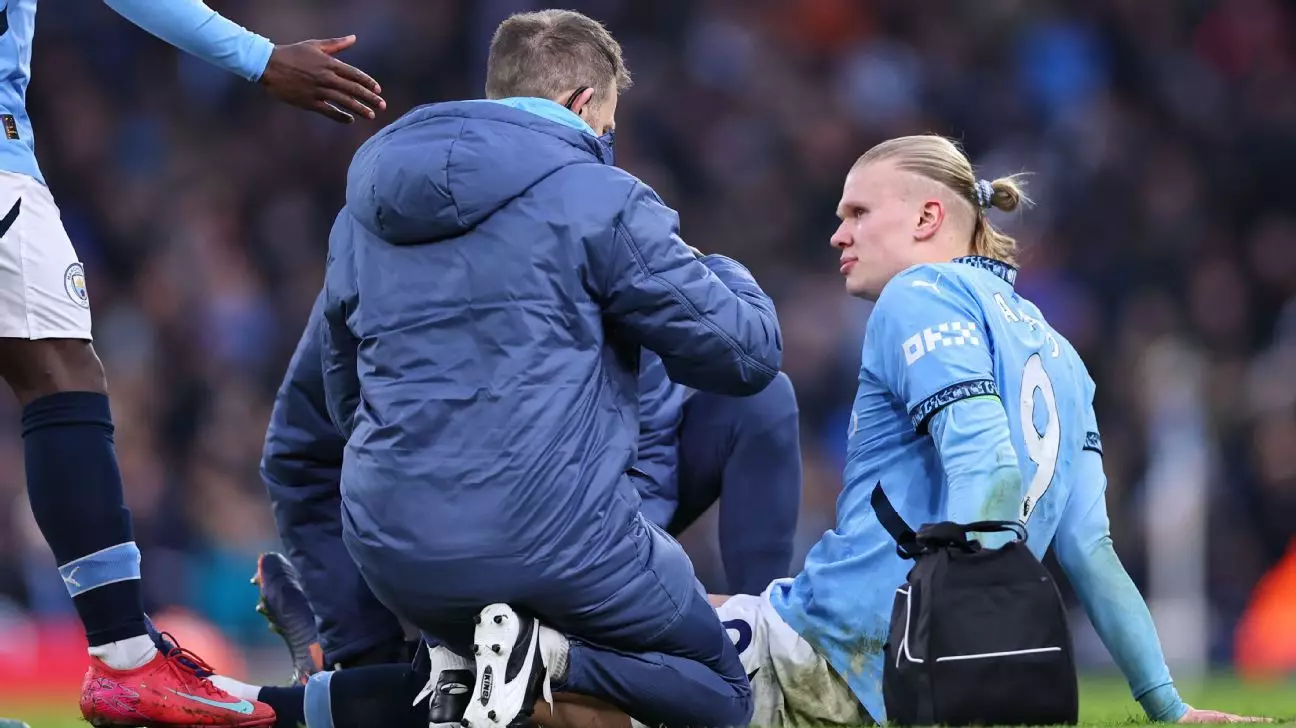In a crucial moment for Manchester City, Pep Guardiola’s apprehensions following Erling Haaland’s injury during their recent game against Newcastle have illuminated the fragility of the team’s current state. After a comfortable 4-0 victory, the excitement was muted by the sight of Haaland, who had been pivotal in the match, collapsing to the ground in pain during the closing minutes. The injury adds an unexpected layer of uncertainty as the team prepares for their Champions League showdown against Real Madrid, where they hope to overturn a 3-2 deficit from the first leg.
Haaland’s injury sent shockwaves through Etihad Stadium, with Guardiola openly admitting to feeling “scared” as his star player lay on the turf clutching his knee. While the initial reaction was one of dread, Haaland’s ability to leave the field under his own power offered a glimmer of hope. Guardiola, reflecting on the situation, revealed a cautious optimism despite not having spoken with the medical team: “The doctor didn’t tell me bad news, so hopefully he is fine,” he stated, indicating his team’s reliance on the striker’s fitness for the upcoming match.
In the wake of Kyle Walker’s departure and Kevin De Bruyne’s strategic positioning on the bench, Haaland was thrust into a leadership role against Newcastle, donning the captain’s armband for the first time in the Premier League. This decision by Guardiola underscores the manager’s long-term vision, as he highlighted Haaland’s new ten-year contract with the club. Given the young forward’s immense talent and goal-scoring abilities, it seems only natural for Guardiola to place trust in him, not only as a player but as a leader within the squad.
Guardiola commented on the evolution of team dynamics post-Walker’s exit, noting, “When Kyle left, Kevin became the first [captain], then I nominated Erling.” This shift signifies a transitional phase for City, where the next generation of leaders is being shaped. With De Bruyne being a substitute and Walker’s exit altering the leadership landscape, the decision to elevate Haaland reflects Guardiola’s confidence in forging a future where younger players step into crucial roles.
As Manchester City gears up for the decisive leg against Real Madrid, the stakes are painfully high. The team not only faces the challenge of overcoming a slim deficit but also must navigate the psychological ramifications of relying on a potentially injured key player. Haaland’s ability to infuse the squad with vigor cannot be understated, given he netted both of City’s goals in the first leg—his presence on the field is undeniably vital.
The tactical implications of Haaland’s fitness affect more than just his goal-scoring prowess; they resonate through the team’s overall strategy. Should he be unable to play, Guardiola will need to recalibrate not just his lineup but the entire attacking framework of the squad to compensate for his absence, an unenviable task against world-class opponents like Real Madrid.
In a sport where every moment counts, the coming days will be pivotal. Guardiola’s mixed feelings of hope and anxiety highlight the intense pressure surrounding not only Haaland’s potential recovery but also City’s aspirations for European glory. As the situation develops, one can only watch with bated breath, waiting to see how this story unfolds on the grand stage of the Champions League.

